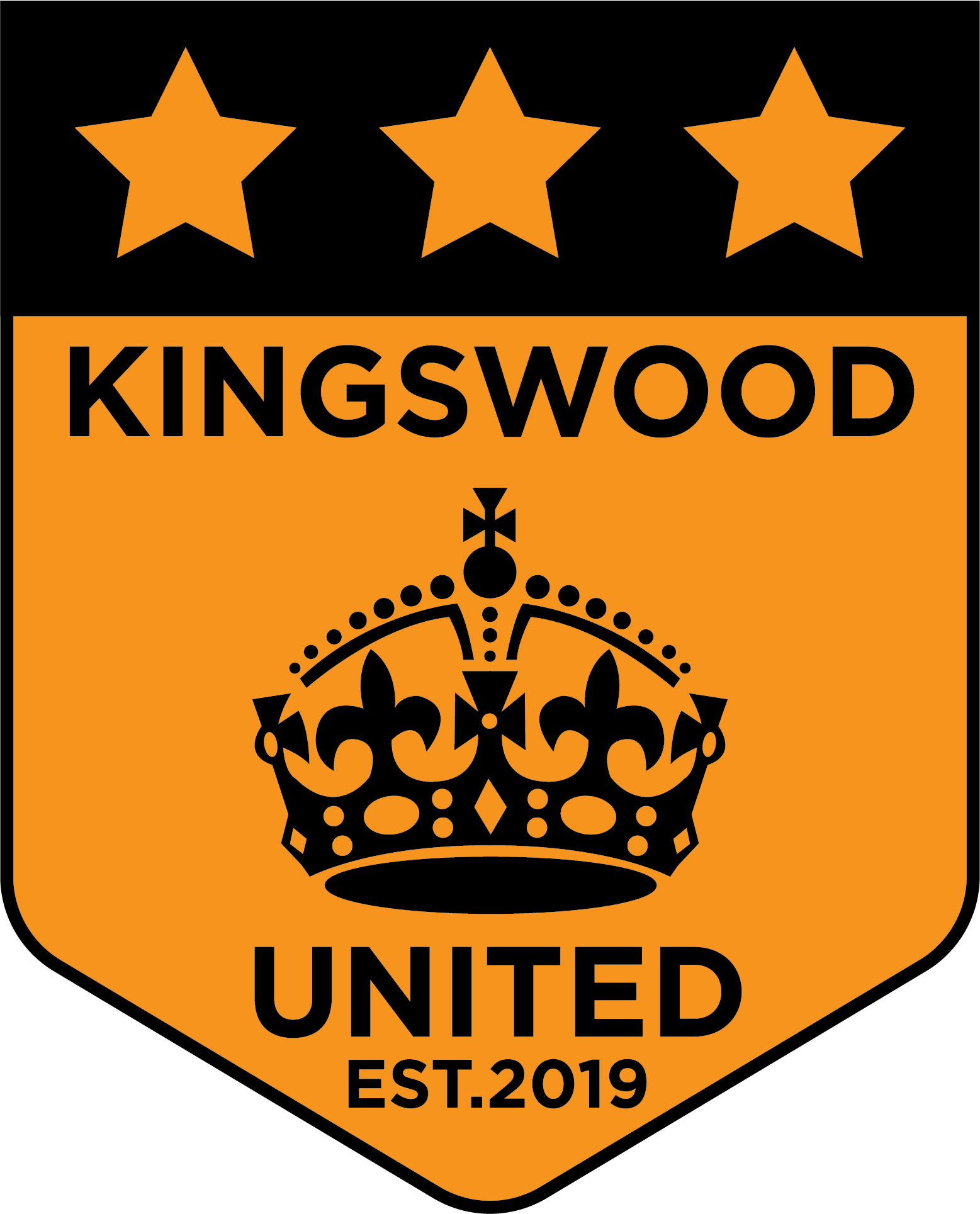Code of conduct
All our codes of conduct align with our Club Vision, Mission and Values - Click here
This season, we will adopt the FA Respect the Standards Grassroots Code, developed by grassroots clubs for grassroots clubs. The Grassroots Code is designed to unite everyone across grassroots football by driving positive standards of behaviour we can all get behind.
https://www.englandfootball.com/participate/behaviour/the-grassroots-code
YOUTH FOOTBALL (PDF Version)
Enjoy The Game
We’re here to enjoy ourselves…win, lose or draw. To help make football more enjoyable for all I should:
• Remember that football is about enjoyment, not just winning.
• Encourage others and behave well.
• Bring a positive attitude to training and matches.
• Recognise when my teammates give respect, work together, or try their best.
Give Respect
We always treat others as we’d like to be treated. To give respect at football I must:
• Always use respectful language and actions.
• Not argue with the referee, coach, and officials, and accept their decisions about football and my behaviour.
• Show fair play by shaking hands with our opponents whether we win, lose or draw.
• Tidy up after myself and take care of the facilities we use.
Be Inclusive
We embrace our differences, football is a game for everyone. To be inclusive at football I must:
• Welcome everyone, whoever they are and whatever their background or ability.
• Involve everyone and always be kind.
• Treat everyone fairly and tell a trusted adult if this doesn’t happen.
• Celebrate everyone’s good play, effort and success.
Work Together
We’re a team, on and off the pitch. To help us bond as a team I should:
• Encourage my team-mates if they make a mistake.
• Try my best and help my team, by being positive and supportive.
• Play fairly, without cheating, diving, complaining, or wasting time.
• Accept that I may not be able to play in my favourite position all the time, or that I may need to take a break to give someone else playing time.
• Recognise that if I’m the Captain, I need to try hard to set a positive example for others to follow
Play Safe
We all have a role in safeguarding children. To help keep everyone safe I must:
• Remember football is about making friends, learning new skills and of course, being active!
• Take responsibility, encourage others, and keep it positive.
• Know that I have a right:
• To feel safe online and offline.
• To have healthy relationships with appropriate boundaries.
• Not to feel uncomfortable or unsafe.
• Not to be bullied, harassed, or intimidated.
• Not to be treated unfairly. If this doesn’t sound like your football experience, speak to an adult you trust.
If I DON'T live up to the Standard
I understand that my Club, League or County FA may take action, that could include:
• Giving me a verbal warning.
• Inviting me to a meeting to explain my behaviour.
• Warning me about my behaviour.
• Asking that I complete an FA education course.
• Suspending me, meaning I do not take part in games for a period of time.
• Removing my registration, meaning I can’t play for my team again.
• Fining and/or suspending my Club.
ADULTS IN YOUTH FOOTBALL (PARENTS & SPECTATORS PDF VERSION)
Enjoy The Game
We’re here to enjoy ourselves…win, lose or draw.
To help make football more enjoyable for all I should:
• Come to training and matches with a positive attitude and put the
well-being of children first.
• Recognise examples of respect, effort and good play, as well as achievement.
• Appreciate grassroots football should be about children playing and having fun,
not solely about results.
Give Respect
We always treat others as we’d like to be treated. To give respect at football I must:
• Always use respectful and positive language and actions.
• Not argue with the referee, coach, and officials, and accept their decisions.
• Avoid coaching from the sidelines as a spectator, recognising this is likely to
cause uncertainty and confusion across the team.
• Encourage children to show fair play by shaking hands with opponents and
being kind, whether we win or lose.
• Stay in designated spectator or technical areas.
• Tidy up after myself and take care of the facilities we use.
We embrace our differences, football is a game for everyone.
Be Inclusive
To be inclusive at football I must:
• Show zero tolerance for discrimination of any kind.
• Report anything that concerns me via the relevant channel.
• Treat people based on their character, and nothing else.
• Accept that we all bring our own personal perspectives to the game.
• Not exclude anyone because of background or personal characteristics.
• Strive to give fair playing time to all children.
Work Together
We’re a team, on and off the pitch. To help us bond as a team I should:
• Remember we are ‘one team’ helping young people enjoy football.
• Encourage players and celebrate their effort.
• Avoid criticising players if they make a mistake.
• Discourage cheating, complaining and time wasting from everyone.
• Accept that my child may not always be able to play in their favourite position, or may need to make a break to give someone else playing time.
Play Safe
We all have a role in safeguarding young people and vulnerable adults.
To keep everyone safe I must:
• Accept it is my responsibility to know if my role in football places
me in a position of trust.
• Speak to my Club or League Designated Safeguarding Officer
if I am unsure whether I am in a position of trust.
• Understand appropriate boundaries must be in place, both online
and during face-to-face activity.
• Let a Club Official know if I see anything that looks unsafe.
• Be aware of who the first aiders are, and where the nearest
Automatic External Defibrillator is located.
• Keep appropriate boundaries by:
• Always putting the well-being of children first.
• Being friendly but professional.
• Encouraging children to review their own progress.
• Raising concerns about a child to the Club Welfare Officer if they display
behaviour not usual to them or which causes concern.
• Follow the ‘Physical contact and young people: Guidance for grassroots football’
guidelines. If my role requires physical contact with a child, I will:
• Ask the child’s permission and explain the type of, and reason for the
physical contact.
• Keep physical contact to skill development, first aid, harm prevention or
celebration of success or comfort in times of distress.
• Ensure another responsible adult is present for the duration.
• Remember physical touch should be culturally sensitive to a child.
• Not participate in training, warm up or cool down sessions with children
(including my own) to protect them from accidental physical harm.
If I DON'T live up to the standard
I understand that my club, League, County FA or The FA may take action, that could include:
• Giving me a verbal warning.
• Asking me to meet with the Club, League or CFA Designated Safeguarding Officer.
• Asking me to meet with the Club Committee.
• Asking that I complete an FA education course.
• Asking that I leave the match venue.
• Requesting that I do not attend future games.
• Suspending me or removing my Club membership.
• Fining me.
• Fining and/or suspending my Club.
About Referees, Assistant Referees and Match Officials:
The FA believes that all Match Officials should be able to officiate free from the threat of
violence or intimidation. Any threatening behaviour or physical contact on a Match Official
will result in a lengthy exclusion from football and possibly a criminal prosecution.
ADULTS IN FOOTBALL (PDF VERSION)
Enjoy The Game
We’re here to enjoy ourselves… win, lose or draw.
To help make football more enjoyable for all I should:
• Try and bring a positive mindset to all my matches and training sessions.
• Think before I act or speak and recognise not everyone will get or like my ‘banter’.
• Remember that while we all want to win, we have the right to go home without being intentionally harmed or injured.
Give Respect
We always treat others as we’d like to be treated.
To give respect at football I must:
• Always use respectful and positive language and actions.
• Not argue with the referee, coach, and officials, and accept their decisions.
• Follow the rules of the game.
• Show fair play by shaking hands with our opponents, whether we win, lose or draw.
• Stay in my team area when I am not on the pitch.
• Tidy up after myself and take care of the facilities we use.
Be Inclusive
We embrace our differences, football is a game for everyone.
To be inclusive at football I must:
• Show zero tolerance for discrimination of any kind.
• Report anything that concerns me via the relevant channel.
• Know that any abuse or discrimination – like racism, sexism or homophobia – can lead to bans, fines and/or police action.
• Treat people based on their character, and nothing else. • Accept that we all bring our own personal perspectives to the game.
• Not exclude anyone because of background or personal characteristics.
• Remember football is a game for everyone, no matter who they are.
Work Together
We’re a team, on and off the pitch.
To help us bond as a team I should:
• Remember we are all responsible for the result of a match.
• Play fairly, without cheating, diving, complaining, or wasting time.
• Play to the best of my ability to help my team.
• Encourage my team-mates and not criticise them, even when they make mistakes.
• Recognise that if I’m the Captain, I need to try hard to set a positive example for others to follow.
We all have a role in safeguarding young people and vulnerable adults.
To keep everyone safe I will:
• Recognise 16- and 17-year-olds at my club are young people.
• Accept it is my responsibility to know if my role in football places me in a position of trust.
• Speak to my Club or League Designated Safeguarding Officer if I am unsure whether I am in a position of trust.
• Understand appropriate boundaries must be in place, both online and during face-to-face activity.
• Let a club official know if I see anything that looks unsafe.
• Be aware of who the first aiders are, and where the nearest Automatic External Defibrillator is located.
• Keep appropriate boundaries by:
Always putting the well-being of young people first.
Being friendly but professional.
Encouraging young people to review their own progress.
Raising concerns about a young person to the Club Welfare Officer if they display behaviour not usual to them or which causes concern.
• Follow the ‘Physical contact and young people: Guidance for grassroots football’ guidelines. If my role requires physical contact with a young person, I will:
Ask the young person’s permission and explain the type of, and reason for the physical contact.
Keep physical contact to skill development, first aid, harm prevention or celebration of success or comfort in times of distress.
Ensure another responsible adult is present for the duration.
Remember physical touch should be culturally sensitive to the young person.
I understand that my Club, League, County FA or The FA may take action, that could include:
• Giving me a verbal warning.
• Asking me to meet with my Club Committee, the league or our CFA Designated Safeguarding Officer.
• Asking that I complete an FA education course.
• Asking that I leave the match venue.
• Requesting that I do not attend future games.
• Suspending me or removing my Club membership.
• Fining me.
• Fining and/or suspending my Club.
About Referees, Assistant Referees and Match Officials: The FA believes that all Match Officials should be able to officiate free from the threat of violence or intimidation. Any threatening behaviour or physical contact on a Match Official will result in a lengthy exclusion from football and possibly a criminal prosecution.



